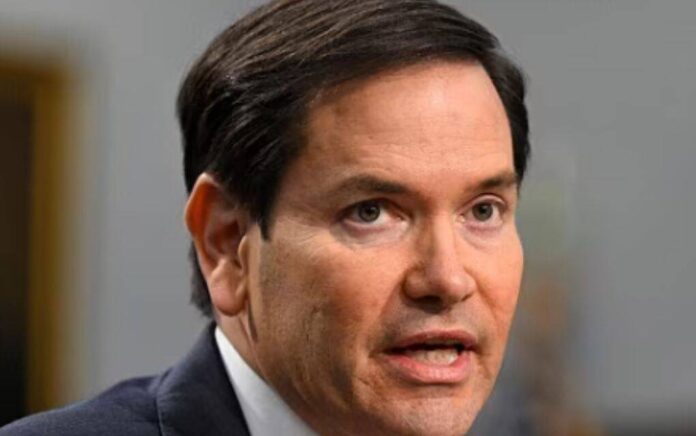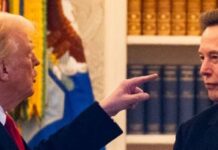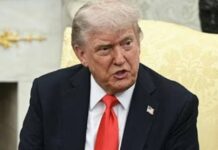
The days of a silent and weak United States are over. The Trump admin is taking a new approach.
And the Secretary of State Marcio Rubio just put on a US display of power that shocked the entire world.
Trump Administration Targets ICC Judges with Sanctions in Defense of U.S. and Israeli Sovereignty
The Trump administration has taken a firm stand against the International Criminal Court (ICC), imposing sanctions on four judges accused of overreaching their authority in investigations targeting the United States and its ally, Israel. The move, announced on Thursday, is one step for the administration’s commitment to protecting national sovereignty and challenging what it views as politically driven actions by an international body.
Secretary of State Marco Rubio spearheaded the announcement, naming judges Solomy Balungi Bossa of Uganda, Luz del Carmen Ibáñez Carranza of Peru, Reine Adelaide Sophie Alapini Gansou of Benin, and Beti Hohler of Slovenia as the targets of the sanctions. These judges were involved in authorizing arrest warrants for Israeli officials and supporting probes into U.S. military personnel in Afghanistan. Rubio described their actions as an “abuse of power” and accused the ICC of operating with political motivations rather than legal impartiality.
“As ICC judges, these four individuals have actively engaged in the ICC’s illegitimate and baseless actions targeting America or our close ally, Israel,” Rubio said in a statement. “The ICC is politicized and falsely claims unfettered discretion to investigate, charge, and prosecute nationals of the United States and our allies.” He emphasized that such actions threaten the sovereignty and security of both the U.S. and Israel, a key partner in the Middle East.
The sanctions stem from two specific ICC decisions. Judges Bossa and Ibáñez Carranza approved a formal investigation into alleged war crimes by U.S. troops in Afghanistan, a probe that has long been a point of contention for Washington. Meanwhile, Gansou and Hohler authorized arrest warrants in November 2024 for Israeli Prime Minister Benjamin Netanyahu and Defense Minister Yoav Gallant, citing war crimes during Israel’s conflict with Hamas in Gaza. The Trump administration views these moves as unjustified and biased.
“The United States will take whatever actions we deem necessary to protect our sovereignty, that of Israel, and any other U.S. ally from illegitimate actions by the ICC,” Rubio said. The statement underscores the administration’s broader strategy of shielding its personnel and allies from international judicial overreach, particularly when it perceives the ICC as exceeding its mandate.
The ICC responded swiftly, condemning the sanctions as an attack on its independence. “These measures are a clear attempt to undermine the independence of an international judicial institution,” the ICC said in a statement. “The ICC stands fully behind its personnel, and will continue its work undeterred, in strict accordance with the Rome Statute and the principles of fairness and due process, with a view to bringing justice to victims of war crimes, crimes against humanity, genocide and the crime of aggression.”
Critics of the sanctions, including United Nations human rights chief Volker Türk, have pushed back against the Trump administration’s decision. Türk called for the “prompt reconsideration and withdrawal” of the measures, arguing that they undermine the rule of law and equal protection under it—principles he claims the U.S. has historically championed. However, some observers have pointed out that Türk’s criticisms of the U.S. in 2024 have outnumbered his remarks on authoritarian regimes like China, North Korea, Cuba, Saudi Arabia, and Qatar combined. Notably, Türk has yet to address Beijing’s well-documented detention of Uyghur Muslims.
The sanctions have also reignited domestic political debates. In January, a majority of House Democrats voted against legislation that would penalize the ICC for its arrest warrants against Israeli leaders, signaling divisions in Washington over how to approach the court’s actions. The vote highlighted a partisan split, with many Republicans aligning with the Trump administration’s hardline stance.
The issue has drawn commentary from across the political spectrum. Former President Joe Biden, for instance, sharply criticized the ICC’s arrest warrants for Israeli officials, calling them “outrageous.” He added, “whatever the ICC might imply, there is no equivalence — none — between Israel and Hamas. We will always stand with Israel against threats to its security.” Biden’s remarks reflect a rare point of alignment with the Trump administration’s perspective on Israel’s right to self-defense.
The Trump administration’s sanctions mark a continuation of its assertive foreign policy, prioritizing national interests and alliances over deference to international institutions. By targeting ICC judges, the administration aims to deter what it sees as overreach while reinforcing its commitment to protecting U.S. personnel and allies like Israel from external judicial scrutiny.
The debate over the ICC’s role and authority is likely to persist, as the court defends its mandate to pursue justice for war crimes while facing accusations of bias and politicization.
Major news on Israel, the ICC, and the Trump administration can be found right here on The Federalist Wire.



















